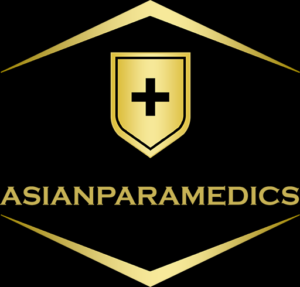microbiology
- Bacteria can cause pathogenesis to humans by:
a) Capsular
b) Secret enzymes
c) Endogenous toxins
d) Exogenous toxins
e) All of the above ✅
- Function of pili of bacteria:
a) Attachment to host tissue ✅
b) Movement
c) Reproduction (multiplication)
d) Engulfment of food
e) All of the above
- Bacteria motile gram-rods:
a) Shigella
b) Bordetella pertussis
c) Pseudomonas aeruginosa ✅
d) Yersinia pestis
- Strict aerobe bacteria:
a) Mycobacterium ✅
- One is always non-motile gram-negative rods:
a) Haemophilus influenzae
b) Shigella ✅
c) E. coli
d) Salmonella
e) Bordetella pertussis
- One is motile gram-negative rods:
a) Haemophilus influenzae
b) Bacillus anthracis
c) Pseudomonas aerogenes ✅
d) Vibrio cholerae
e) Yersinia pestis
- One is gram-positive oval (cocci):
a) Bacillus anthracis
b) Meningococci ✅
c) Pneumococci
- A child diagnosed with scarlet fever is caused by:
a) Streptococcus pyogenes ✅
b) Staphylococcus aureus
- Xylose lysine deoxycholate (XLD) is:
a) Selective media
b) Simple media
c) Differential media ✅
d) Enriched media
e) Enrichment
- One is not a Romanowsky stain:
a) Fields stain
b) Gram stain ✅
c) Giemsa stain
d) Leishman stain
- Best sterilization of nutrient media is done by:
a) Hot air oven
b) Autoclaving ✅
- Organisms (bacteria) arranged in Chinese letters:
a) Corynebacterium diphtheria ✅
b) Bacillus anthracis
- Confirmatory test for Streptococcus pneumonia:
a) Catalase
b) Optochin disc ✅
c) Coagulase
d) Bile insolubility
e) Bacitracin
- Gram-positive cocci arranged in groups (clusters):
a) Streptococci
b) Staphylococci ✅
- One is always oxidase-positive:
a) Haemophilus influenzae
b) Pseudomonas aeruginosa ✅
- Gram-negative bacteria color:
a) Dark purple
b) Pale to dark red ✅
c) Orange
- Bacteria need a dark field to detect:
a) T. pallidum (Syphilis) ✅
- Citrate test assesses:
a) Mycobacteria
b) Staph
c) Strept
d) Colistridia sp ✅
- Nutrient agar:
a) Basic media ✅
- Disease caused by pyogenic streptococcus:
a) Scarlet fever ✅
- Organism causing blood in stool:
a) Shigella sp ✅
- Z.N stain used for diagnosis:
a) Mycobacterium ✅
- Media used to differentiate between L.F and N.L.F:
a) MacConkey media ✅
- Used for cleaning slides:
a) Ethyl alcohol
b) Methyl alcohol ✅
- The following is an ingredient of culture medium:
a) Meat extract
b) Mineral salts
c) Agar
d) Peptone
e) None of the above
f) All of the above ✅
- The most source of ATP in the cell is:
a) Mitochondria ✅
b) Cytoplasm
c) Nucleus
d) Cell wall
- H antigen is present in:
a) Pili ✅
b) Capsule
c) Flagella
d) Cell membrane
- Selective and differential medium of entero-pathogen is:
a) Chocolate agar
b) Blood agar
c) DCA medium ✅
d) Meat extract agar
e) None of the above
- One of these is a prokaryotic cell:
a) Fungi
b) Bacteria ✅
c) Entamoeba histolytica
d) All of the above
e) None of the above
- One of these organisms is gram-positive cocci arranged in pairs:
a) Staphylococci
b) Meningococci ✅
c) Enterococci
- Substance used in catalyzing reactions:
a) H2O2 ✅
- The best sample for the culture of children paralysis virus is:
a) Anal swab ✅
b) Blood culture
c) Stool culture
- All of the following are true for Salmonella except:
a) Motile
b) Produces H2S
c) Oxidase positive ✅
- The best media for urine culture is:
a) Blood agar
b) Chocolate agar
c) CLED agar ✅
- The sterilization of autoclave is:
a) 85°C for 30 minutes
b) 150°C for 30 minutes
c) 121°C for 15 minutes ✅
- Shigella sonnei colored in MacConkey & EMB:
a) Colorless ✅
b) Red
c) Pink
- All the following bacteria are interobacter except:
a) E. coli
b) Proteus
c) None of the previous ✅
- All the following parameters affect gram staining except:
a) Use H2SO4
b) Add absolute alcohol after washing
c) Delaying the dryness of the slide ✅
- Blood sample is used to diagnose:
a) C. tetani
b) C. diphtheria
c) None from them ✅
- Serious cause of food poisoning:
a) Staph albus
b) Salmonella typhi
c) Salmonella enteritidis ✅
- Which of the following causes UTI & INDOL positive:
a) Klebsiella
b) Staphylococci
c) E. coli ✅
- Which of the following culture media is suitable for semi-quantitative bacterial count in urine samples:
a) McConkey agar
b) Blood agar
c) XLD medium
d) Mannitol salt agar
e) CLED medium ✅
- One of the following is capsulated bacteria:
a) Streptococci
b) E. coli
c) Klebsiella pneumonia ✅
- The following organisms are lactose fermenters except:
a) E. coli
b) Enterobacter cloacae
c) Shigella sonnei ✅
d) Proteus spp.
- All is true about Enterobacteriaceae except:
a) They are β-hemolytic and sorbitol
b) Ferments Mannitol
c) Grows in Methylene blue medium
d) Inhibited growth with 6.5% NaCl and/or at temperature ✅
- All are true about Campylobacter jejuni except:
a) Gram-negative curved bacilli
b) Slow growth
c) Grows on XLD medium ✅
d) Arranged in pairs
- Beta hemolysis is enhanced when group B Streptococci is streaked at an angle in blood agar plate with:
a) Streptococci
b) Staph aureus ✅
c) Micrococcus
d) Streptococcus epidermidis
e) Corynebacterium diphtheria
- All statements are true about Proteus mirabilis and Proteus vulgaris except:
a) Exhibits swarming on BAP and McConkey’s agar
b) Urease positive
c) KCN and N2S positive
d) Oxidase negative & liquefies gelatin ✅
- Klebsiella pneumonia:
a) Capsulated ✅
- Some organisms are said to be pathogenic if they contain the following features:
a) Coagulase
b) Catalase
c) Sugar
d) Antibodies ✅
- Sterilization is best done by:
a) 121°C, 15 PSI for 15-20 minutes ✅
- Organism soluble in bile:
a) Staph
b) Streptococci
c) Pneumococci (Streptococcus pneumonia) ✅
d) Haemophilus influenzae
- Thayer-Martin media is the choice for the isolation of the following organism:
a) Pseudomonas aeruginosa
b) Haemophilus influenzae
c) Neisseria gonorrhoeae ✅
- Confirmatory test for Streptococcus pneumonia:
a) Optochin sensitivity disc ✅
b) Bacitracin disc sensitivity
c) Bile solubility
d) Catalase test
- Specimen suitable for microfilaria:
a) Tissue
b) Blood ✅
c) Fluid
- Which of the following organisms is an anaerobic bacterium:
a) Clostridium spp. ✅
b) Haemophilus
c) E. coli
d) Yersinia enterocolitica
- Nutrient agar is:
a) Selective media
b) Differential media
c) Special media
d) Basic medium ✅
- The following organisms are encapsulated except:
a) Pseudomonas aeruginosa ✅
b) E. coli
c) Haemophilus influenzae
d) Streptococcus pneumonia
- Vi antigen is seen in:
a) Capsule
b) Pili
c) Spore
d) Flagella ✅
- All are true about Enterococci except:
a) Have carbohydrate antigen of group D streptococci
b) Positive aesculin hydrolysis
c) Grow in the presence of bile salts
d) Do not grow in the presence of 6.5% NaCl nor at 45°C ✅
- Significant bacteruria, pyuria, and alkaline urine probably indicate urinary tract infection due to:
a) Staphylococcus epidermidis
b) E. coli
c) Proteus vulgaris ✅
d) Pseudomonas aeruginosa
e) Enterococcus faecalis
- Streptococci responsible for the majority of human infections are:
a) Group A
b) Beta-hemolytic streptococci
c) Bacitracin-sensitive and CAMP (-)
d) All of these ✅
e) None of these
- To differentiate between Neisseria gonorrhoeae and Neisseria meningitidis:
a) Fermentation of dextrose and lactose
b) Fermentation of dextrose and maltose
c) Fermentation of maltose and lactose ✅
d) Fermentation of maltose and sucrose
- Blood culture is indicated in the following bacterial diseases except:
a) Meningitis
b) Endocarditis
c) Gastroenteritis ✅
d) Pyelonephritis
e) Pneumonia
- Which of the following statements about Campylobacter jejuni is false:
a) Gram-negative curved bacilli
b) Arranged in pairs (see-gull)
c) Slow growth
d) Grows on XLD medium ✅
e) Incubation temperature at 42°C
- The invasiveness of Streptococcus pneumoniae is due to the production of:
a) Hemolysins
b) Endotoxins
c) Exotoxins
d) Polysaccharide capsule ✅
- Agar is characterized by all the following except:
a) Freezing point is 42°C & melting point is 100°C
b) Nutritive
c) Un-nutritive ✅


